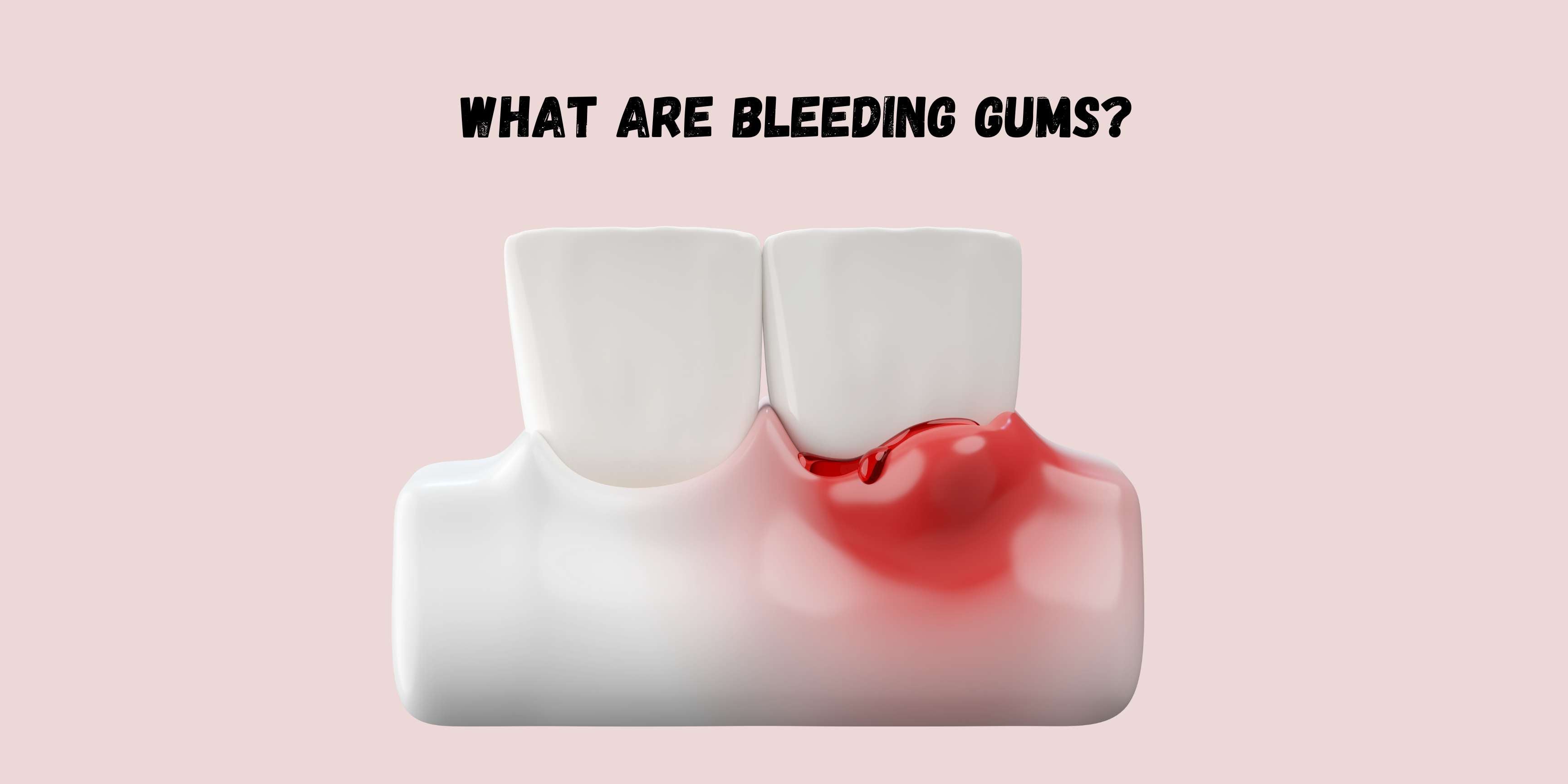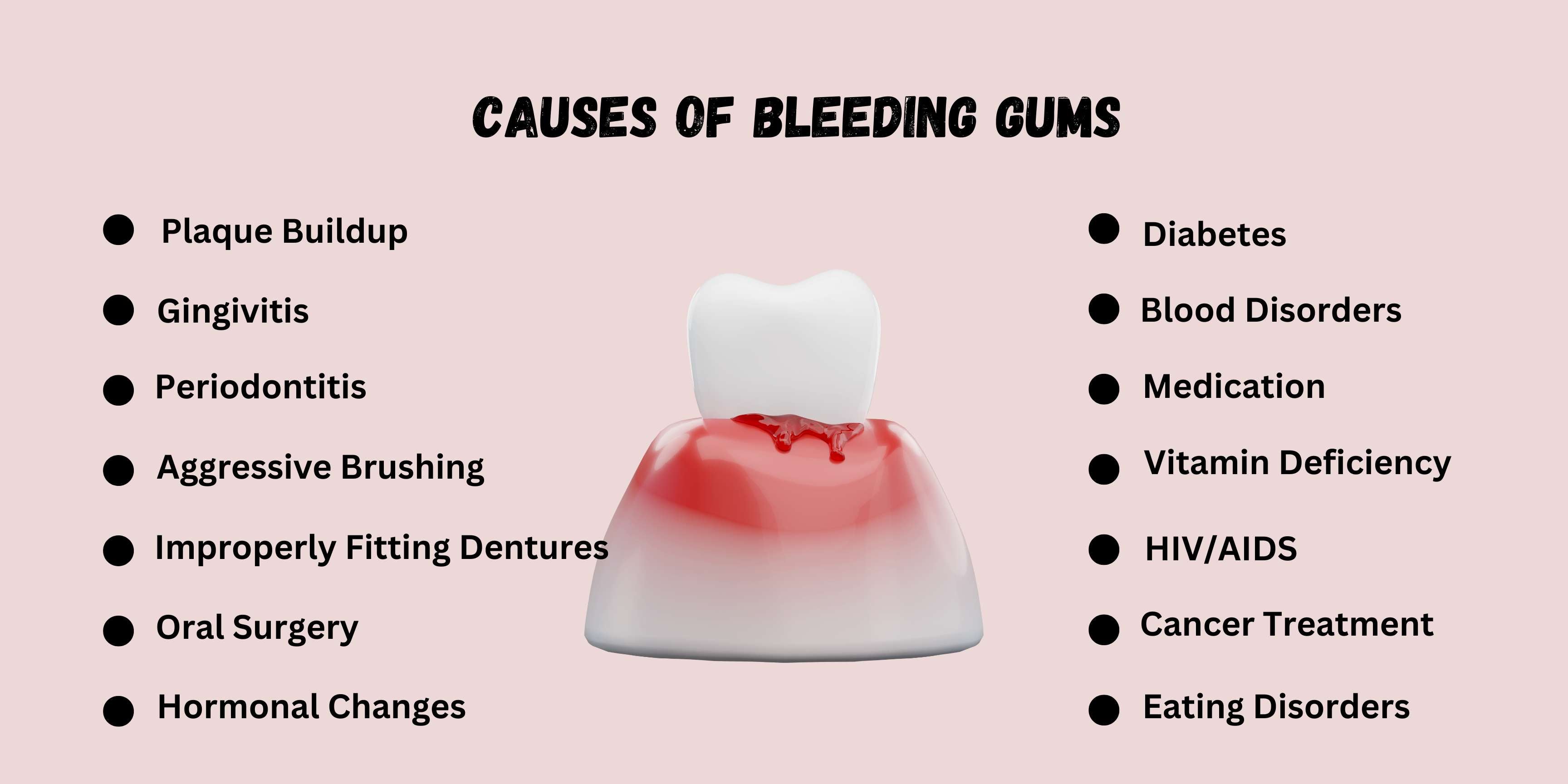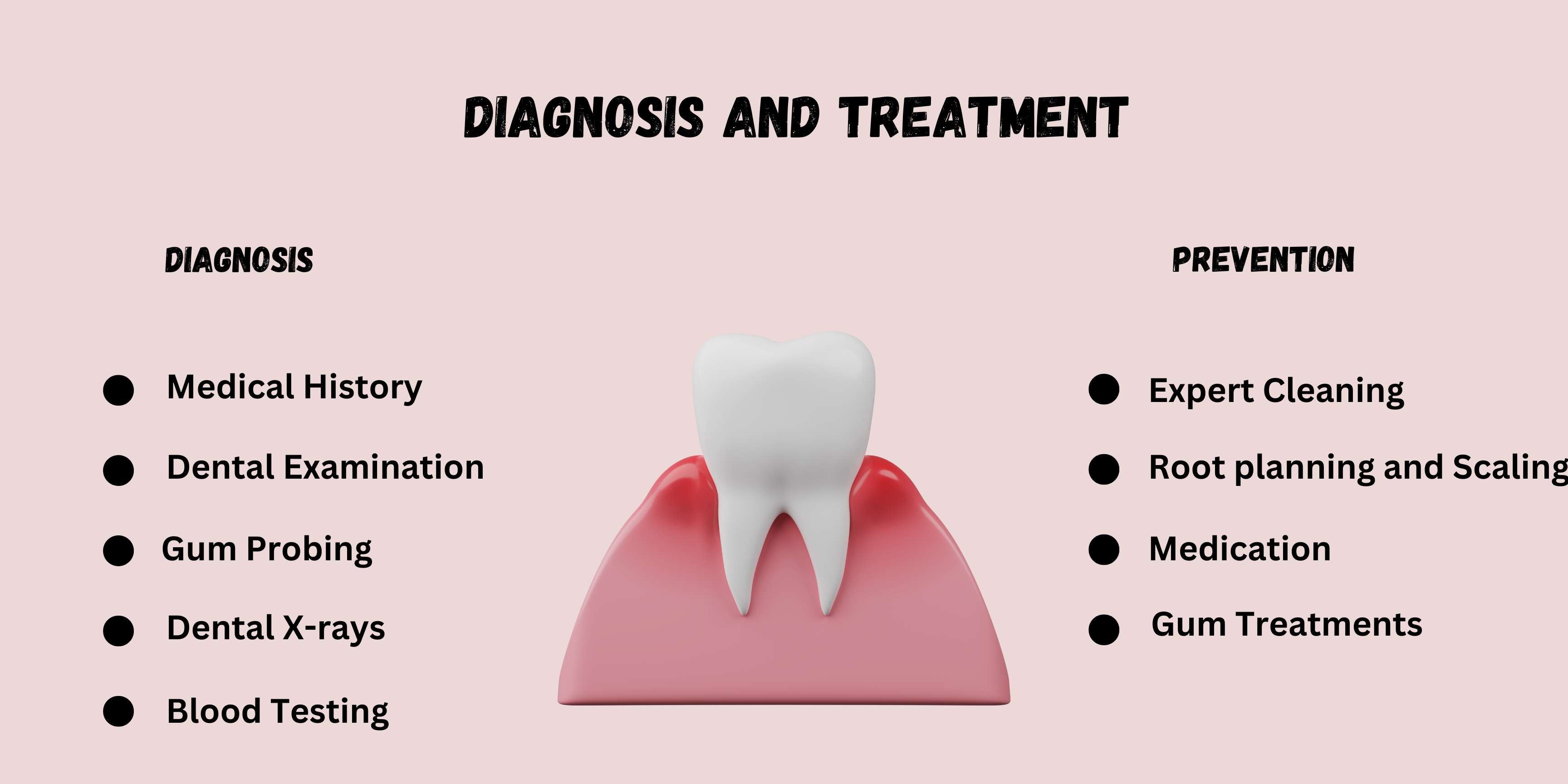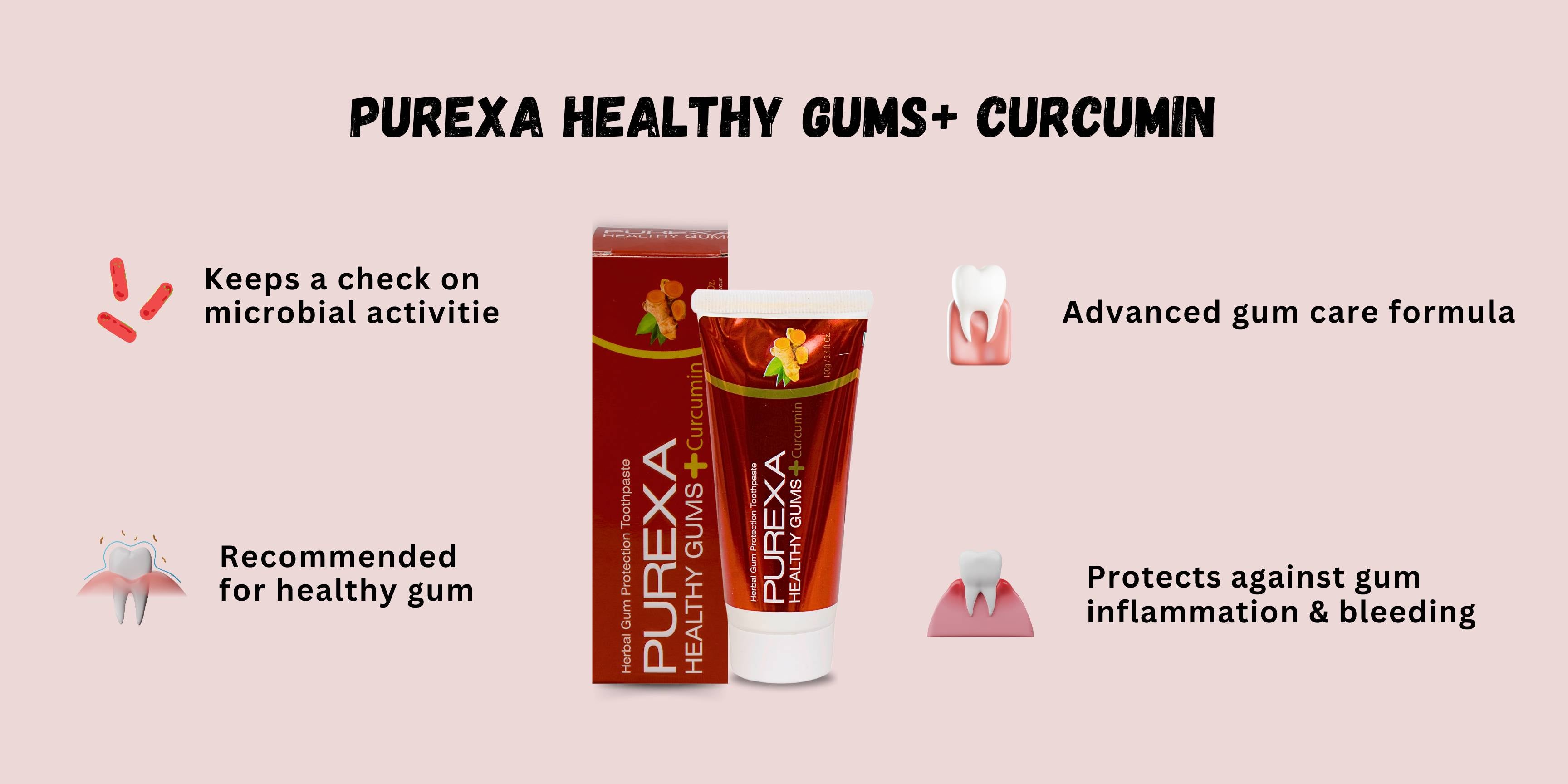Popped a chip into your mouth and feel it wilt in more than just your saliva? Pulled the scraps out and saw them soaked in blood? Feel your nerves tighten and colour leaving your cheeks? Do not panic. Bleeding gums is a serious situation and can give you a hard time but with proper help, you can come out on top just fine.
In this blog, we will shed light on the ordeal that is bleeding gums, what causes it, and the diagnosis and treatment options available to remedy the same. Let’s get going!
Table of Contents
What are Bleeding Gums?

Gum bleeding as the name suggests is a condition in which your gums bleed. It is frequently indicative of periodontitis or gingivitis. However, other factors that may contribute to it include overly vigorous cleaning, ill-fitting dentures, fluctuations in hormones, or medical conditions like diabetes.
While random or frequent bleeding may indicate a problem, occasional bleeding might not be a huge matter. Whatever the stage, this situation needs proper care and control, even medical intervention if necessary.
Symptoms of Bleeding Gums

Here are a few dominating symptoms of bleeding gums that must be addressed with promptness-
- Gum bleeding during brushing or flossing is one of the most noticeable indications of gum disease. During your dental hygiene practice, if your gums bleed easily, there may be underlying problems.
- Red, swollen, and tender Gums is another sign of unrevealed gum issues. Firm, pink gums are indicative of good health. You need to take restorative action if your gums are painful to the touch.
- Gum recession is the term used to describe the condition where the gums recede from the teeth, exposing more of the tooth surface. This may result in more sensitive and longer-looking teeth.
- Severe gum disease can harm the tissues that hold your teeth in place, resulting in loose or unstable sockets.
- Do you detect a taste of metal in your mouth? If there are other symptoms present, it may indicate gum disease.
- An increase in blood flow to the affected area makes diseased gums appear glossy, smooth, and brilliant red. Additionally, they could seem spongy, bloated, and mushy to the touch.
- Also referred to as "black triangle disease," receding gums between the teeth is a condition characterised by a prominent gap in the gums between teeth.
- Severe infection may cause abscesses to develop in the gums, which will then produce pus discharge. This is a serious indication that needs to be addressed right away by a dentist.
- Modifying Tooth Alignment can be another symptom of a deeper gum problem. Gum disease can deteriorate over time and have an impact on the stability of teeth, causing them to move or become dislodged.
- Increased sensitivity to hot, cold, and sweet Foods may serve as a prelude to bigger gum problems. Receding gums reveal teeth's delicate roots, which causes an increase in sensitivity.
Causes of Bleeding Gums

Gum bleeding isn’t to be taken lightly. It is usually a product of some nefarious bacterial activity happening in the background. Let's examine the several elements that may have a role in this condition-
Plaque Buildup- A sticky layer of food particles, saliva, and germs, plaque builds on your teeth covers it whole. If you don't brush and floss regularly, this plaque turns into tartar, which irritates your gums and increases the likelihood that they may bleed.
Gingivitis- An early stage of gum disease brought on by plaque accumulation, gingivitis usually follows prolonged gum bleeding. Gums that are red, swollen, and bleed readily even with light brushing are its defining feature.
Suggested Read - Know more about Gingivitis
Periodontitis- Gingivitis can worsen into periodontitis, a more serious gum infection that can harm your jawbone and gums, if it is not treated. This critical condition can result in complete teeth loss.
Aggressive Brushing- Attempts to maintain dental hygiene might occasionally backfire. Using a hard-bristled toothbrush and brushing too firmly might abrade your gums, causing bleeding.
Improperly Fitting Dentures- Improperly fitting dentures might rub against your gums, causing bleeding and discomfort.
Oral Surgery- As a normal part of the healing process, even simple surgeries like tooth extractions can cause temporary bleeding gums.
Hormonal Changes- Due to increased blood circulation, hormonal changes brought on by puberty, pregnancy, and menopause can make your gums more sensitive and prone to bleeding.
Diabetes- High blood sugar levels in this condition can weaken capillaries and gums, increasing the risk of bleeding.
Blood Disorders- Conditions such as your body's capacity to clot blood effectively can be compromised by leukaemia, haemophilia, and platelet problems, which can lead to excessive bleeding from your gums.
Medication- A number of drugs, including blood thinners like aspirin, warfarin, and heparin, can increase the risk of gum bleeding.
Vitamin Deficiency- Your gums may become weaker and more prone to bleeding if you don't obtain enough of certain vital nutrients, such as vitamins C and K.
HIV/AIDS- HIV/AIDS-related infections can result in gum inflammation and bleeding gum ulcers.
Cancer Treatment- Although essential for the treatment of cancer, chemotherapy and radiation therapy might impair your body's defences and exacerbate gum disease.
Eating Disorders- Nutritional deficits brought on by eating disorders such as bulimia and anorexia can show up as bleeding gums.
Even though this list is not exhaustive, it pretty much covers all the important causes leading to bleeding gums. The causes also differ in their impact and intensity. It coud also be a set of causes culminating in the said condition.
Suggested Read - How to Stop Bleeding Gums
Diagnosis and Treatment

Proactive prevention and precise diagnosis are essential for managing and treating bleeding gums. Now let's explore the key elements of identifying gum disease and practical preventive measures.
Diagnosis of bleeding gums-
Medical History- Knowing your medical history is the most important step in conducting a comprehensive evaluation. In order to identify possible reasons of bleeding gums, dentists ask about symptoms, medications, and underlying medical disorders.
Dental Examination- Dentists perform a thorough dental examination using the information from your medical history. This means closely examining the area for any telltale signs of gum disease, such as loose teeth, gum recession, inflamed gums, and dental plaque, among other relevant indicators.
Gum Probing- Gum probing is an essential part of the examination. In this procedure, gum pockets around teeth are evaluated using a periodontal probe to determine the extent of separation from the teeth and detecting any possible trouble spots.
Dental X-rays- Dental X-rays are used to provide a more thorough understanding of the degree of gum disease. Using these images, medical professionals may analyse gum disease damage and determine how much bone has been lost around teeth.
Blood Testing- To identify the underlying systemic reasons of bleeding gums, blood testing may be advised in specific situations. Blood diseases, vitamin deficiencies, diabetes, leukaemia, and other systemic conditions that may present as gum disease can all be diagnosed with the aid of these tests.
Prevention of bleeding gums-
Expert Cleaning- An essential part of preventive care is having a regular professional cleaning every six months. The process include removing tartar and plaque deposits with great care and flattening uneven tooth surfaces to prevent the growth of bacteria.
Root planning and Scaling- Scaling and root planing is a useful remedy for people suffering from gum disease. In addition to removing plaque and tartar buildup below the gum line, this deep cleaning technique smoothes the surfaces of the roots to promote ideal gum health.
Medication- To stop the spread of bacteria and encourage healing in situations of gum infections and bleeding gums, medical professionals may recommend antibacterial mouth rinses, antibiotic gels, or systemic antibiotics.

Purexa’s toothpaste for bleeding gums, alongside our newest addition, Gum Astringent, works synergistically to keep a check on microbial activities. This powerful duo not only protects your gums against inflammation and bleeding but also strengthens them for optimal oral health.
Gum Treatments- In order to treat considerable damage and restore gum health, procedures like gum grafts and flap surgery may be advised for more severe forms of gum disease.
Treating the Root Causes- Treating the underlying causes of bleeding gums is just as important as treating the symptoms. This could entail taking care of diabetes, modifying drug regimens, treating vitamin deficiencies, and making sure dentures fit properly.
Maintaining ideal dental health requires understanding when to seek expert help and how to treat bleeding gums at home. Let's take a closer look at these important subjects-
When to See a Physician?
Even with improved oral hygiene habits, bleeding gums that last longer than two weeks require immediate dental care. It is essential to treat swollen, bleeding gums as soon as possible in order to avoid more serious issues like tooth loss.
It's important to see a dentist if gums bleed for prolonged periods of time. Making use of a dentist's experience guarantees early treatment effectiveness and precise diagnosis. Prompt problem solving reduces complications and greatly improves results. Here are some advantages of getting bleeding gums treated as soon as possible-
- Gum bleeding frequently acts as a sign of gum disease that needs to be professionally treated for the best outcome.
- Postponing a dentist appointment and relying on self-resolving symptoms may worsen the situation.
- The tissues and bone that support teeth are at risk from gum disease, and untreated cases may result in tooth loss.
- Treatment efforts are made easier when gum disease is identified early on.
- Dentists are qualified to assess ongoing bleeding, precisely determine the underlying cause, and recommend the best course of action to stabilise the situation.
Home Treatments for Gum Bleeding
Bleeding gums can also be managed at home. Think about including the following procedures in your daily oral hygiene regimen to contain a mild situation of gum bleeding.
- Use a toothbrush with soft bristles to gently brush swollen gums and reduce irritation.
- Floss every day to get rid of dirt and plaque between teeth, supporting healthy gum tissue.
- To help mend and soothe inflamed gums, rinse your mouth with warm salt water.
- Use an antibacterial mouthwash to assist in lowering inflammation and bacterial growth.
- You may strengthen your gums and improve your overall dental health by adding foods high in vitamins C and K to your diet, such as citrus fruits, leafy greens, broccoli, soybeans, and tomatoes.
Moreover, it's critical to avoid things like sugary meals, smoking, and dehydration that can make gum inflammation worse. While taking care of your gums at home can help, you should always see a dentist for a professional examination as soon as possible.
Suggested Read - Healing Power of Hydrogen Peroxide in Bleeding Gums
Final Thoughts
Bleeding gums is an upsetting condition, but they are a problem that can be successfully treated with prompt attention and care. Maintaining the best possible dental health and avoiding more serious consequences require an understanding of the origins, symptoms, diagnosis, and available treatments for bleeding gums.
There exist multiple variables that might lead to bleeding gums, ranging from hormone fluctuations to plaque accumulation. Proactive prevention and accurate diagnosis, however, are essential to properly managing and treating this condition.
Getting regular dental exams, having your teeth professionally cleaned, and implementing good oral hygiene habits at home are all crucial to avoiding and treating bleeding gums. Additionally, discomfort relief and gum health promotion can be substantially enhanced by knowing when to seek professional assistance and by employing doable home remedies.
Recall that bleeding gums are not something to ignore or treat casually. In order to avoid potential consequences such as tooth loss, persistent symptoms should be seen by a dentist as soon as possible.
You may overcome the difficulties caused by bleeding gums and keep a beautiful, healthy smile for years to come by attaching great priority on dental health, taking preventive action, and seeking treatment as and when a distressing dental situation strikes.
Written by Dr. Shipra Jaiswal, BDS, MDS, a Periodontist and Gums Specialist